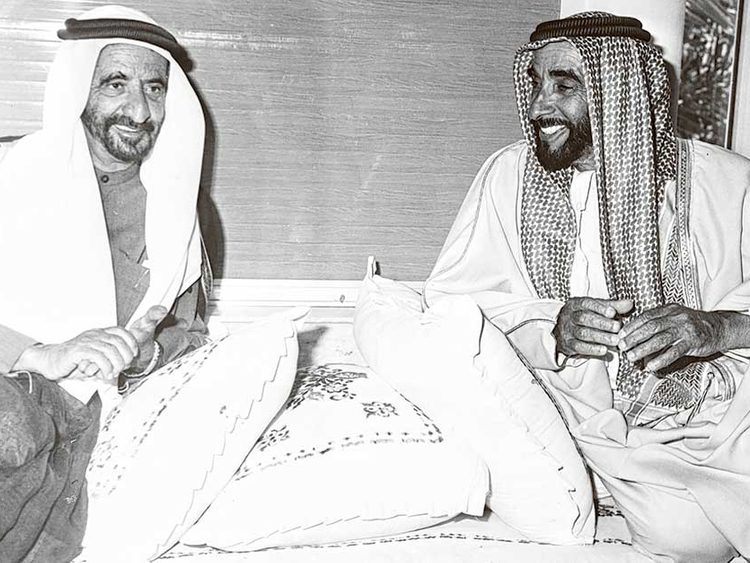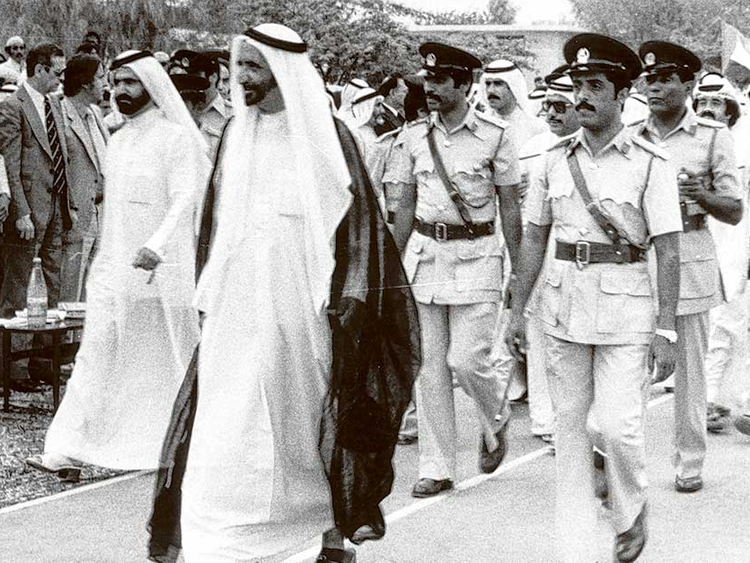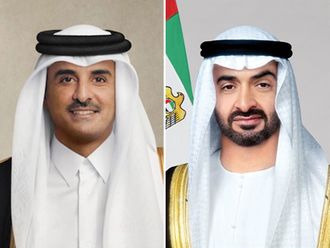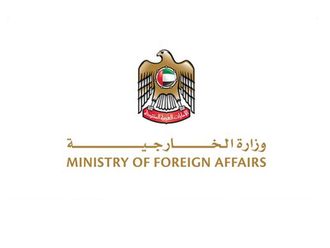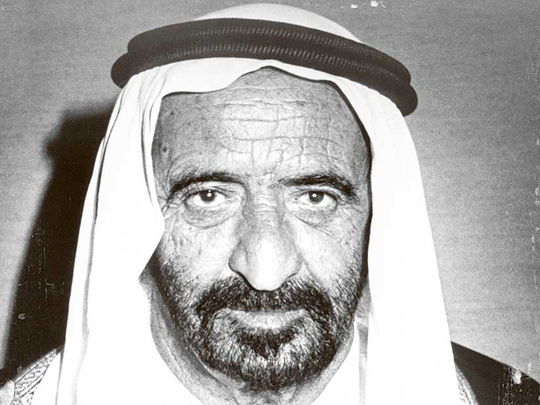
Abu Dhabi: Thanks to the founding fathers, the UAE is widely recognised today as a successful modern state that, starting from scratch just four decades ago, has managed to establish the foundations of a prosperous and advanced society.
The spectacular achievements of the founding fathers –—Shaikh Zayed Bin Sultan Al Nahyan and Shaikh Rashid Bin Saeed Al Maktoum — have allowed the country to assume a position of preeminence regionally and internationally; to play effective and responsible political and economic roles and to contribute to the stability and security of the region.
Shaikh Rashid Bin Saeed Al Maktoum (1912-1990), was Ruler of Dubai from 1958 till his demise on October 7, 1990. He was also the Prime Minister of the United Arab Emirates and Vice-President from 1971 until his demise.
In the early 1970s, Shaikh Rashid envisaged a town, seaport and airport focused on developing an industrial region in the emirate.
Loved, respected
Shaikh Rashid, the eighth ruler from the Al Maktoum family, was loved and greatly respected by the residents of Dubai, as he ruled the emirate with compassion and with a clear vision of what was required to transform Dubai into a modern city. Driven by this vision, Shaikh Rashid accomplished what many believed to be impossible.
Projects viewed as impossible by many members of society, including foreigners, were seen as challenges by Shaikh Rashid.
Shining examples of these projects are Al Maktoum Hospital, the first modern hospital in what was then the Trucial States; Al Maktoum Bridge, which spanned the Creek, joining Dubai with Deira and eliminating the long trip around the head of the Creek; and Dubai airport, which bore immediate reward as demand for seats grew much faster than anticipated.
These projects showed clearly that Dubai’s infrastructure planning was hardly ever just a response to the immediate needs of the community: it was clearly linked to the ambitious ideas about the future development of Dubai.
Shaikh Rashid also saw an industrial port as essential part of that concept and a key to Dubai’s development and industrialisation.
He personally chose Jebel Ali as the location for his new supersized port and even conceived an outline concept before involving his advisers in the planning, financing and construction of what was to become one of the world’s major ports.
Shaikh Rashid retained a personal interest in Jebel Ali Port long after it was completed and even after he became ill. He continued to visit Jebel Ali Port until he was no longer able to do so.
In 1985, Jebel Ali Free Zone opened as the UAE’s and the region’s first free zone and, over the years, this would become the template which competitor free zones would follow, establishing the backbone of UAE’s lucrative logistics sector. But, initially, Jebel Ali Free Zone was not the economic success story that it is today, establishing the UAE as a global logistics powerbroker.
As a child Shaikh Rashid received the finest education available in the region. Attending Al Ahmadiyyah School, Shaikh Rashid’s studies included Islamic studies, Arabic, and arithmetic.
Shaikh Rashid’s hands-on approach called for a disciplined daily schedule. Twice daily he would tour Dubai to see for himself how the projects were progressing. Shaikh Rashid was never satisfied with a simple explanation; instead he wanted to have a detailed understanding of every project undertaken in Dubai. Furthermore, these inspections provided him with the opportunity to meet the man on the street.
After returning home in the evening, it was time to take on more official business in the traditional evening majlis, an occasion when the Ruler gives his people the opportunity to meet him and share problems or grievances. This duty was one which Shaikh Rashid took very seriously.
Shaikh Rashid was famed and admired for his patience on these occasions; he thoughtfully considered each man’s complaint or opinion, ensuring that proper assistance was given to each individual.
The majlis, a mix of citizens, also provided a vibrant stage for debate. Surrounded by men whose opinions he valued, projects were dissected, moulded, and often implemented by members of the majlis. Determined in his unfaltering belief that a modernised Dubai could be achieved, Shaikh Rashid initiated numerous remarkable developments in his city-state.
On October 7, 1990, Shaikh Rashid died but left behind a legacy visible in the town planning of Dubai.
Khalfan dwells on Late Sheikh Rashid bin Saeed’s Legacy His Excellency Lieutenant General Dhahi Khalfan Tamim, Deputy...
Posted by Dubai Police - Official Page on Thursday, 8 October 2015


